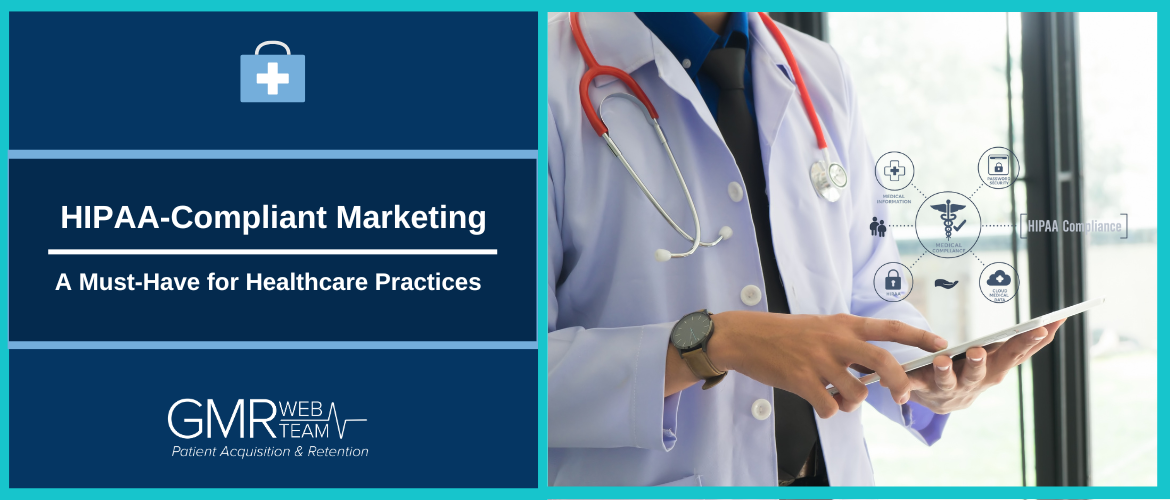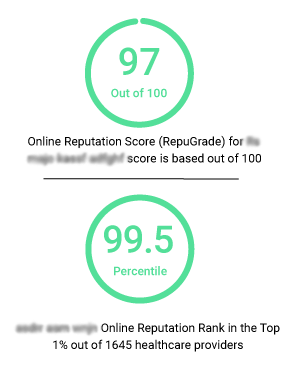HIPAA-Compliant Marketing: A Must-Have for Healthcare Practices

In the digital age, healthcare practices are under pressure to build a strong online presence while safeguarding patient privacy. Marketing is essential for attracting new patients and growing a practice, but it’s crucial that all marketing efforts comply with HIPAA (Health Insurance Portability and Accountability Act) regulations. HIPAA-compliant marketing ensures that patient data remains secure while allowing healthcare providers to promote their services effectively.
Let’s explore why HIPAA-compliant marketing is essential for healthcare practices. Not only does it help you stay compliant with legal requirements, but it also fosters trust with patients, helping to strengthen your practice's reputation and ensure long-term success.
The Importance of HIPAA-Compliant Marketing
The growing reliance on digital marketing tools, like email campaigns, social media advertisements, and online patient portals, has brought about new challenges for healthcare practices. While these tools make it easier to reach potential patients, they also make it more important than ever to adhere to HIPAA regulations. HIPAA was designed to protect patient privacy and ensure the security of their personal health information. Failure to comply with HIPAA guidelines can lead to serious legal and financial consequences.
However, beyond just compliance, HIPAA-compliant marketing is critical for building and maintaining trust with patients. When patients feel confident that their personal information is secure, they are more likely to engage with healthcare services and share necessary health details. Non-compliant marketing practices, on the other hand, can damage the relationship between a healthcare provider and a patient, leading to loss of trust and potential harm to the practice’s reputation.
Thus, compliance is essential for ensuring that healthcare providers are trusted and respected by their patients.
HIPAA Basics for Healthcare Marketing
HIPAA has set strict standards regarding the handling of Protected Health Information (PHI), which includes any health information that can identify a patient, such as names, addresses, medical histories, and billing details. Healthcare marketers must ensure that PHI is never shared in any form of marketing content unless explicit consent is obtained from the patient.
Some important HIPAA rules healthcare practices must follow include:
- Do not include PHI in marketing materials: Always ensure that no PHI appears in any marketing communications, including advertisements and promotional emails, unless the patient has granted express consent.
- Obtain patient consent: Always ask patients for written permission before using their data for marketing purposes.
- Ensure third-party compliance: If third-party vendors or platforms are used in your marketing efforts, ensure they also comply with HIPAA standards. This is particularly important when sending communications, such as emails or text messages, on your behalf.
How HIPAA Rules Shape Healthcare Marketing Strategies?
To comply with HIPAA, healthcare practices must make several necessary adjustments to their marketing strategies. The goal is to protect patient privacy while still allowing healthcare providers to market their services effectively.
Here are some critical changes healthcare practices should consider to ensure HIPAA-compliant marketing:
- Emails and Text Messages: When sending marketing emails or text messages, ensure these communications do not contain sensitive health information unless the patient has granted permission. If personal health information is needed for the marketing effort, secure written consent from the patient beforehand.
- Social Media: Exercise caution when posting about patient experiences on social media. Patient testimonials or success stories should be anonymized or have explicit patient consent before being shared.
- Patient Data Security: If you are collecting patient data through forms on your website or via other digital means, ensure that the data is securely encrypted. This includes both patient information and medical details.
Examples of HIPAA’s Influence on Marketing
The implementation of HIPAA-compliant marketing impacts many areas of healthcare marketing strategies. Below are a few examples:
- Patient Testimonials: If you want to share success stories, you must ensure that all patient information is anonymized unless you have explicit written consent. Even when permission is given, ensure it is appropriately documented to comply with HIPAA.
- Email Marketing: Healthcare providers must avoid sending promotional emails that contain sensitive medical details without patient consent. For example, suppose a patient receives an email offering a health promotion based on their previous visit. In that case, that email must exclude any information that can identify the patient or their specific medical conditions.
- Third-Party Platforms: When using third-party platforms for targeted advertising or email campaigns, ensure they follow HIPAA guidelines. Verify that these platforms are secure and ensure patient information is not exposed to unauthorized parties.
Common Pitfalls and Best Practices for HIPAA-Compliant Marketing
Many healthcare practices unknowingly make mistakes that lead to non-compliant marketing. Some common pitfalls include:
- Using Patient Data Without Consent: Sharing patient data with third-party advertisers or using personal health information without obtaining patient consent is a significant HIPAA violation.
- Not Securing Digital Communications: Failure to encrypt patient data and secure communications could result in a HIPAA violation.
- Not Educating Staff: Sometimes, healthcare providers fail to properly educate their staff and third-party vendors about HIPAA rules, which can lead to inadvertent violations.
Best Practices:
- Obtain Explicit Consent: Always get written consent before using a patient’s health information for marketing purposes.
- Ensure Encryption: Any patient data collected online should be encrypted to prevent unauthorized access.
- Use Compliant Marketing Platforms: Choose marketing platforms that guarantee HIPAA compliance when sending communications like emails or newsletters.
- Educate Your Team: Train your team and third-party vendors about HIPAA regulations so that everyone involved in marketing efforts understands the importance of maintaining patient privacy.
- Regularly Review Marketing Strategies: As your marketing strategies evolve, periodically review them to ensure they remain HIPAA-compliant.
By following these best practices, healthcare practices can ensure that their marketing efforts comply with HIPAA and maintain patient trust.
Protect Your Patients and Your Practice with HIPAA-Compliant Marketing at GMR Web Team
HIPAA-compliant marketing is not only about avoiding penalties, it’s a critical part of protecting your patients’ privacy and maintaining trust. At GMR Web Team, we understand the complexities of healthcare marketing and the importance of staying compliant with HIPAA regulations. Our team works closely with healthcare providers to implement marketing strategies that meet HIPAA standards, all while effectively promoting their services.
As part of our commitment to safeguarding patient data, we work with healthcare providers under a HIPAA Business Associate Agreement to ensure that all marketing strategies meet regulatory requirements while effectively promoting their services.
For healthcare practices to thrive in today’s digital landscape, they must prioritize HIPAA-compliant marketing. By doing so, you can grow your practice, reach new patients, and build long-lasting relationships without compromising patient privacy. If you’re ready to take the next step and implement HIPAA-compliant marketing strategies for your practice, contact us today to get started.
Be the first to post a comment



Thanks For Comment